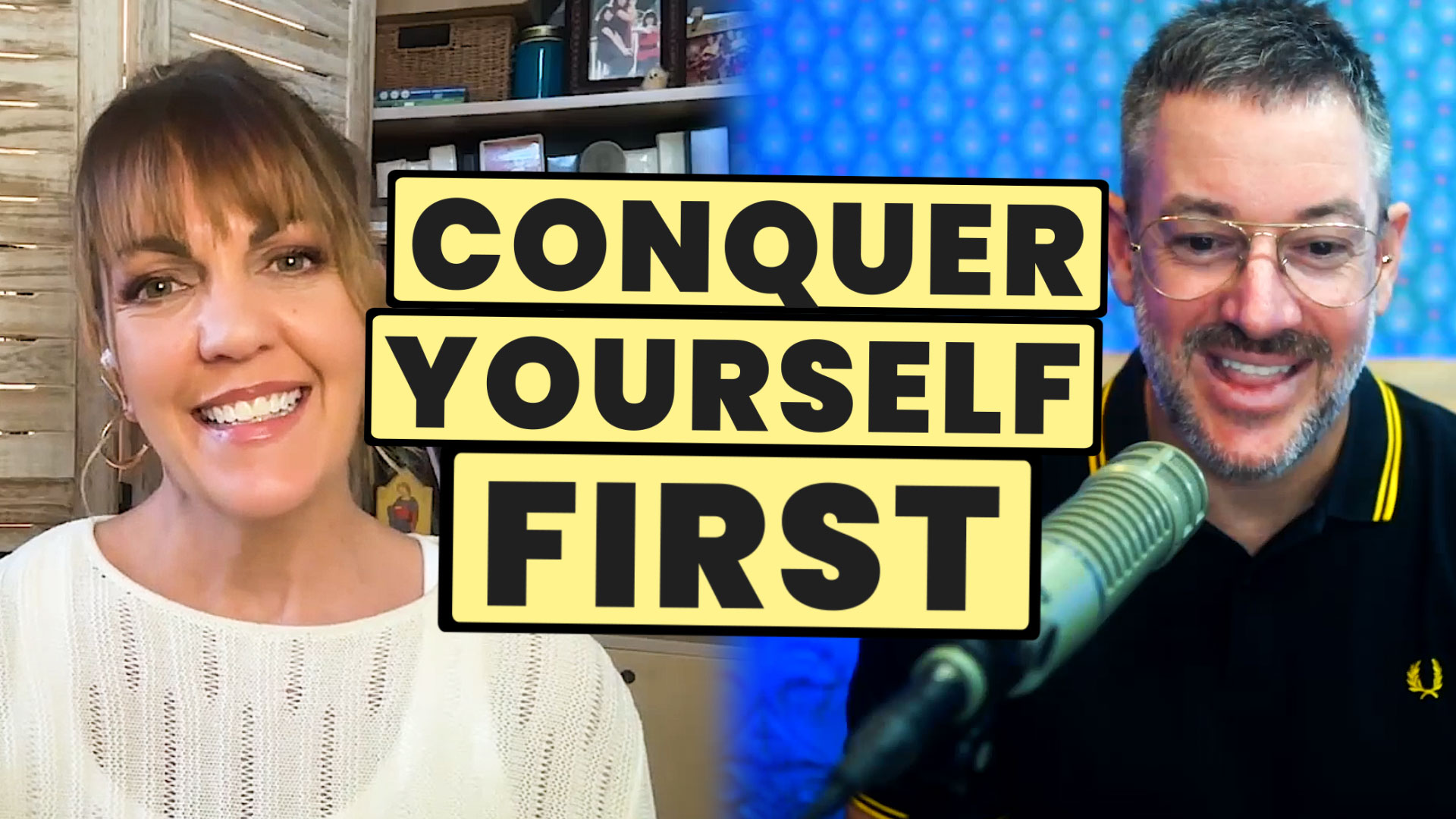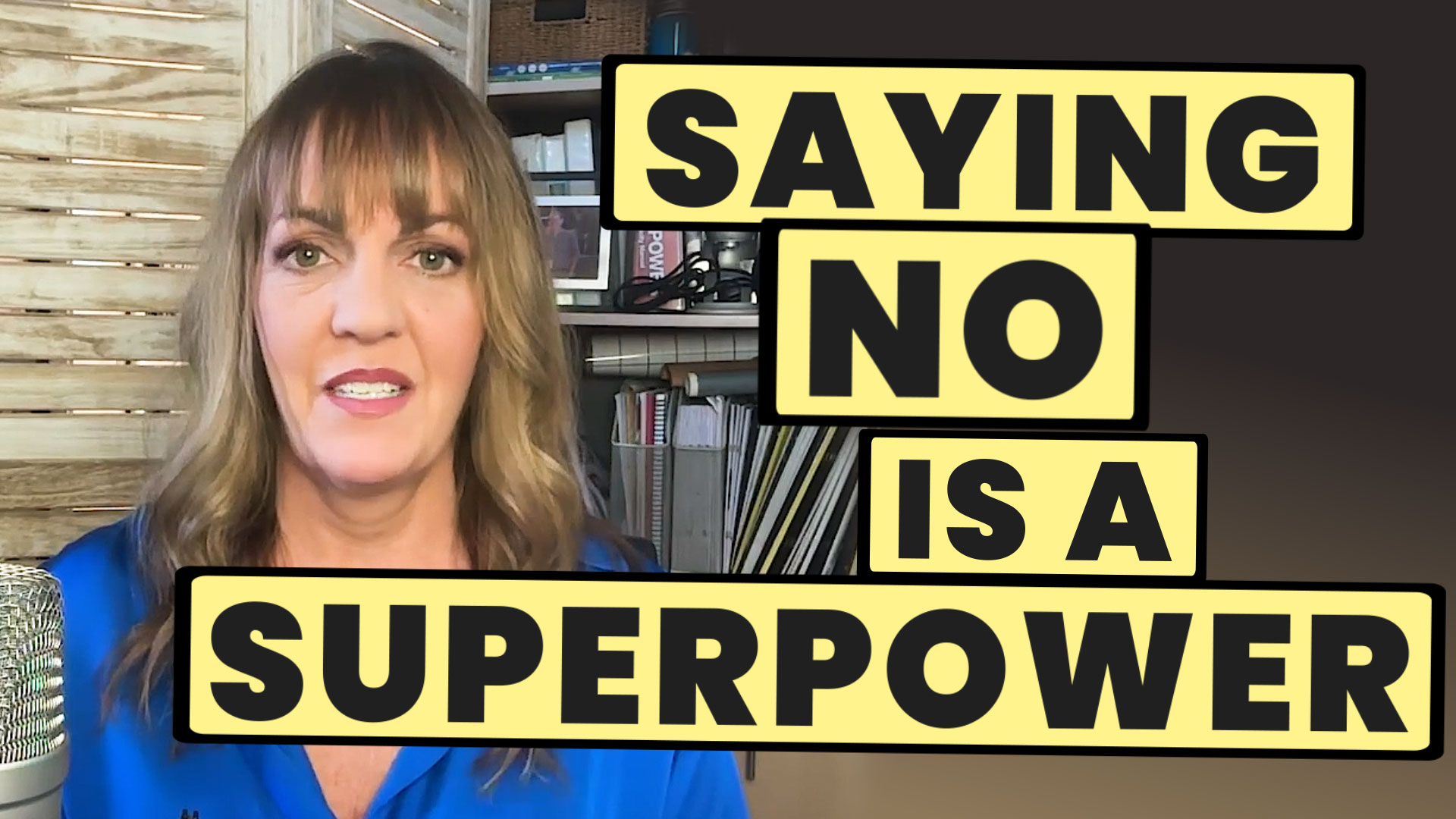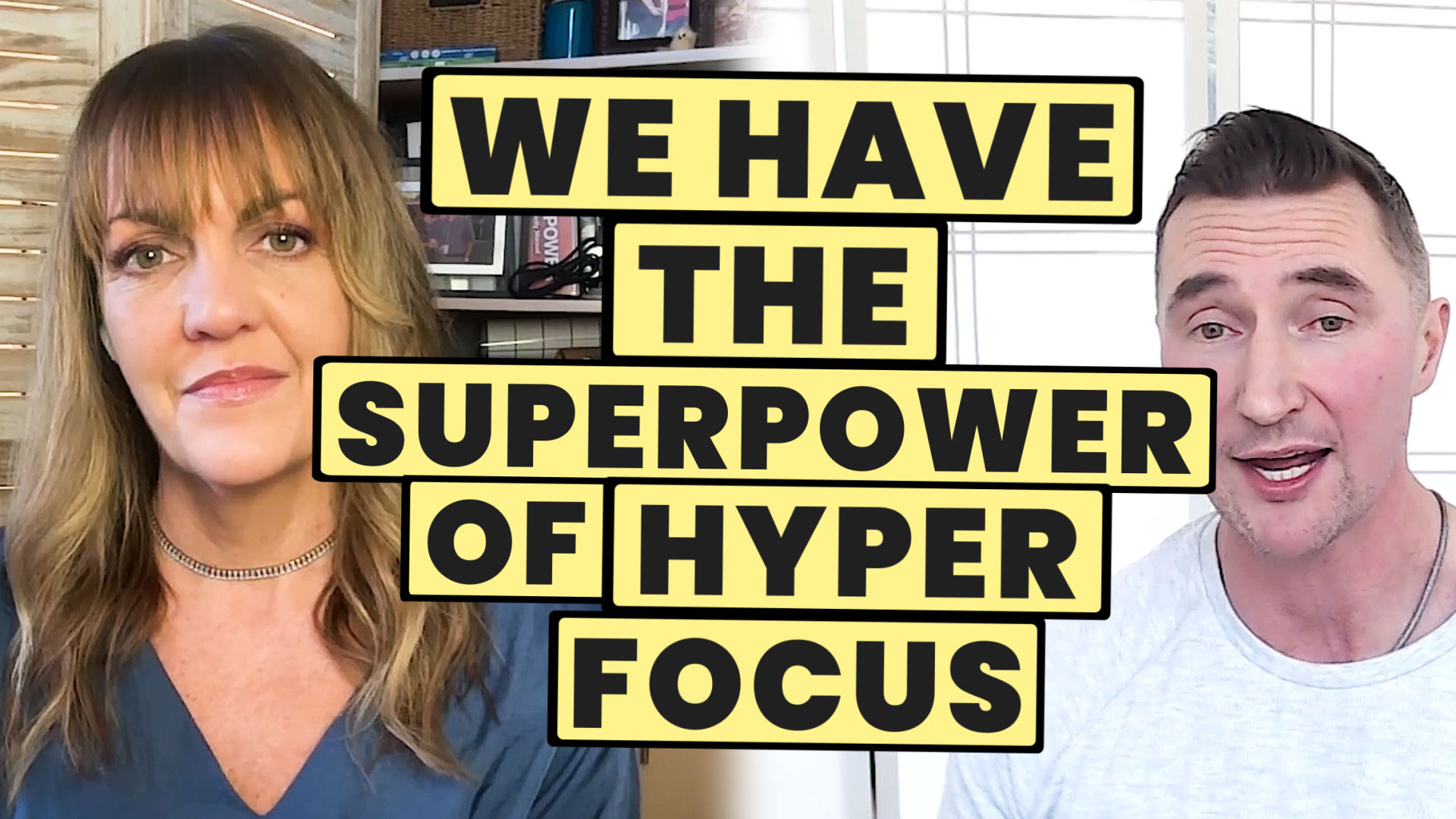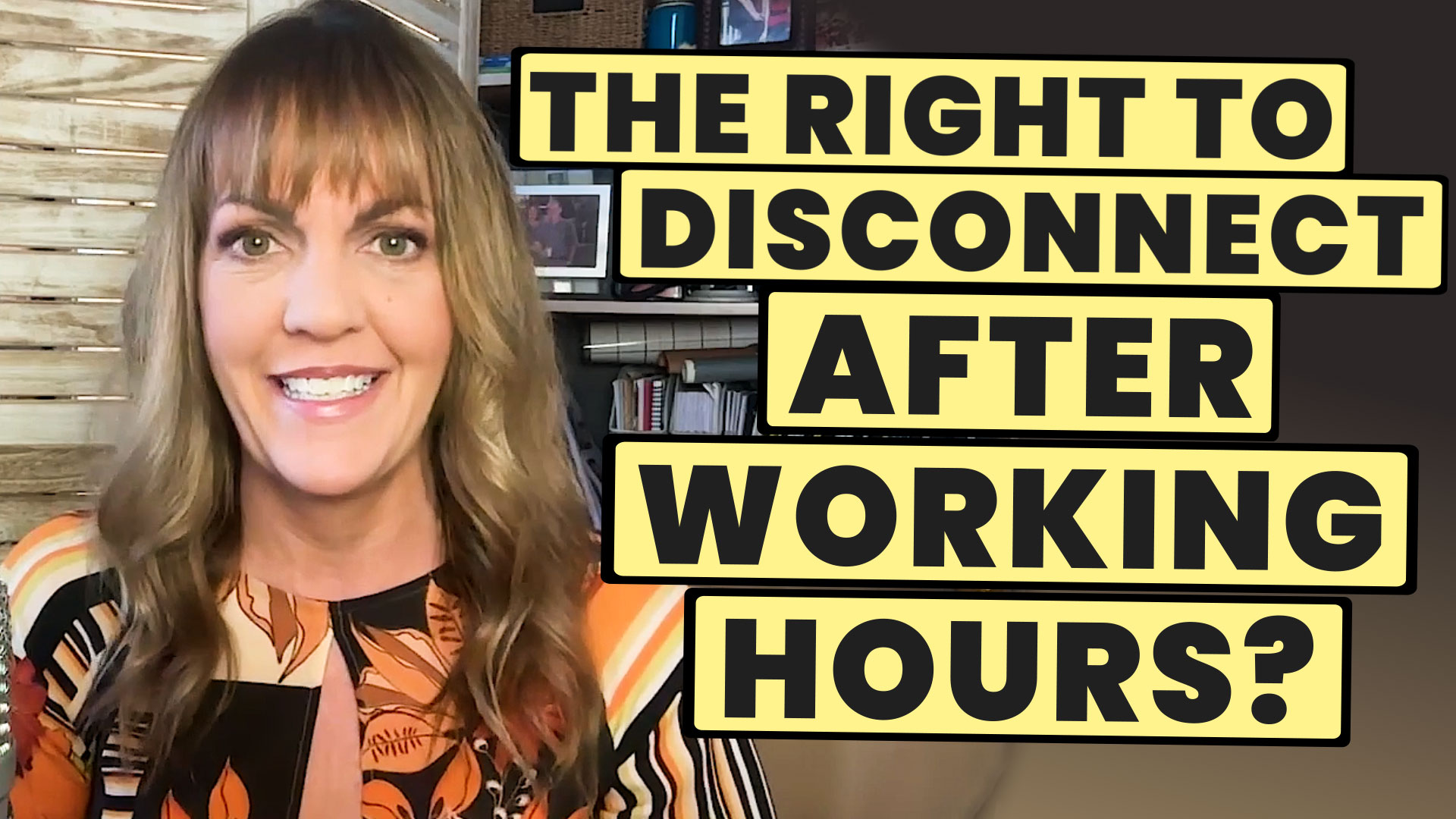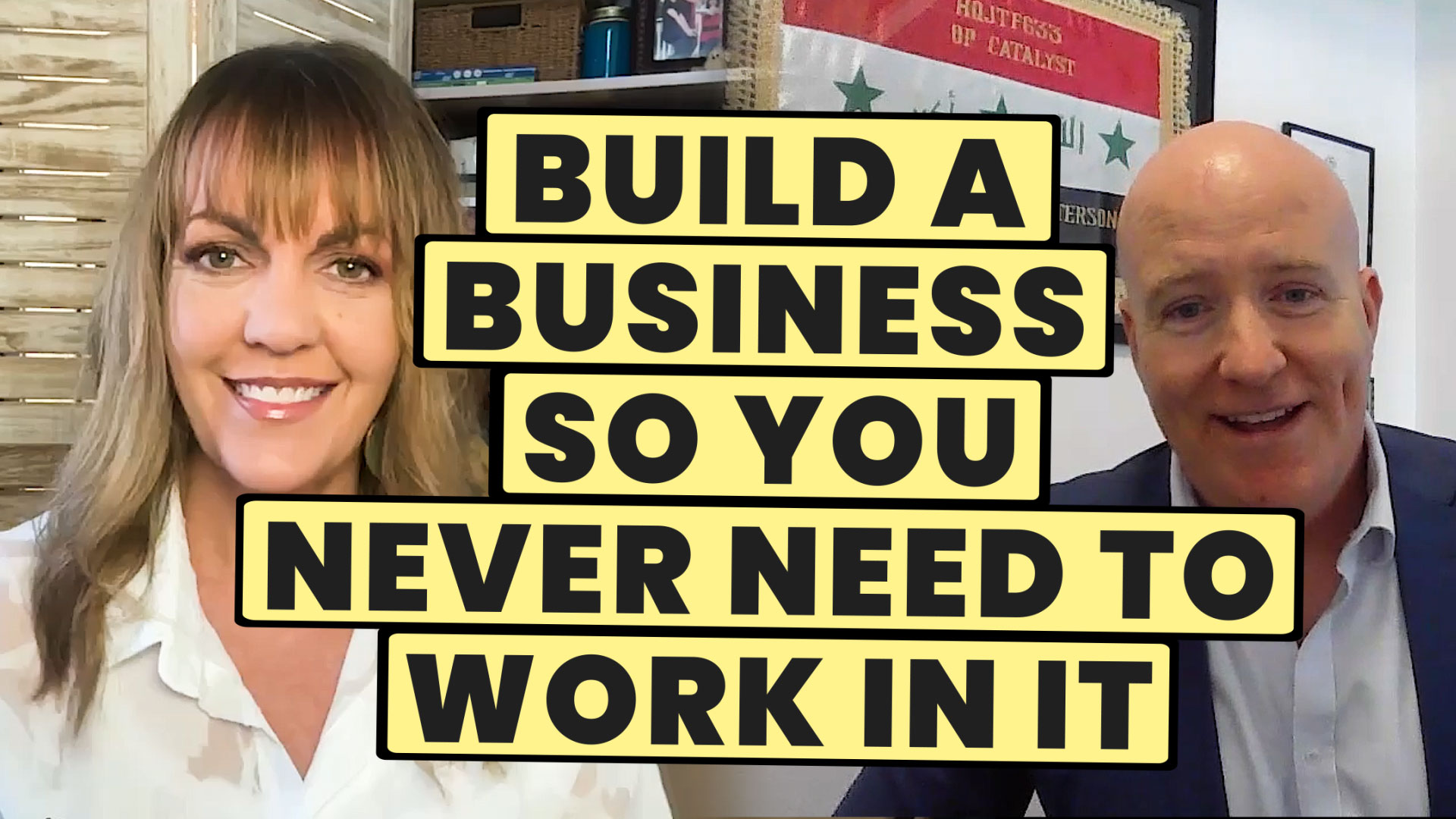Episode 131 Transcript
Heather Porter (00:08.11)
Hello, you guys. Welcome to episode 131. I have a question for you. Do you ever have negative thoughts about yourself or your business? I mean, yeah, right? If you're human, you do. It's just part of being human. So I want to paint a little picture for you about how you think about your negative thoughts that pop up from time to time. And by the way,
This isn't my own little metaphor, but I love it. So I thought I'd share it with you guys. So imagine your mind as a garden. Negative thoughts are essentially like the weeds that grow or pop up in your brain, in your mind, your negative thoughts, while your strengths and your weaknesses are like different flowers. Some flowers bloom brilliantly and brightly while others take a lot longer.
grow. The key here is to understand that every single flower in your mind, even the slow bloomers, play a part in making your garden vibrant. So you need weaknesses and you need strengths. You need positivity and you need negativity and all of it together really forms what's going on in your brain. And I'm going take it a little bit
further. The reason why I'm having this conversation with you is because my head of coaching, Adam, who you've met on a couple of episodes on this podcast, he's my head of coaching and sales. He had a session with me, so I wanted him to coach me because he's really, really, really good at what he does. And he leads off our, our sort of division called the unicorn collective, where he focuses on coaching entrepreneurs. And so I'm like, coach me.
So the other day he had me write down my strengths and my weaknesses and just put them out there, like for the world to see. And he and I had a chat through each of them. So I could really have awareness around both sides, both the positive and the negative side of myself, at least that I think that I thought at the time was negative and positive. And so then when I had these negative thoughts arise, I'd have this sort of new perspective around how to deal with them.
Heather Porter (02:32.588)
So that was essentially what the gist was of our conversation. So we really mapped out my strengths and my weaknesses. And through that conversation, I have two important findings that I wanted to share with you guys. So that little brain of yours with all the weeds and all the flowers growing around every single day, might have some clarity into at least some insights that I got when I was going through this process. So it's really, really important point number one to acknowledge both your strengths
and your weaknesses. You want to acknowledge both. We often view weaknesses as failures, or at least I certainly have in the past. But in reality, there are areas of like untapped potential that you have, your weaknesses. So for example, if someone struggles with time management, rather than labeling it as your flaw or your weakness, you can actually see it as a chance to develop better organizational skills. That's funny, it's funny that...
that was actually one of my things I was working on was time management. Even though I host this show, I still like to cram too much in my day. Not necessarily that. I actually underestimate how long it takes me to do things. That's more my problem. So we had to like kind of work through that process because I want to get so much done while still taking care of myself. But looking at that, I'm like, OK, then I need to look at my organizational skills and build in more buffer time around my appointments. And he even said, I challenge you to try and do
you know, be okay with doing 70 % rather than 100 % of some of your tasks as far as you being perfect with it, right? So the shift in perspective allows you to really focus on solutions rather than like beating yourself up around, God, I suck at time management, for example. And then you can look at productivity tools, delegating tasks, just revisiting how you operate in that particular weakness of yours. Now I want to...
tell you about a study as well. So there's research in psychology that suggests that people that embrace like a growth mindset. So essentially, we see weaknesses as areas to improve, rather than fixed traits that you just are born with and you have for the rest of your life. So that growth mindset, people that have that tend to outperform those who focus only on their strengths. Isn't that interesting? The mindset helps you develop resilience, adaptability and
Heather Porter (04:54.01)
long -term success. So you're literally seeing your life differently rather than going, yeah, I'm shit. I'm so good at this. I don't need to work on anything. So think of an entrepreneur, for example, who's like really struggles with financial planning. Another thing that most of us in running our businesses, I mean, a lot of us are not good at numbers or we think we're not. If this entrepreneur who's not good at numbers chooses to ignore their financial weaknesses,
like literally sweep it under the rug, they might run into cashflow problems. However, by learning the basics of finance and actually going, okay, here's my weakness, then you can hire an expert, you can learn, you can upskill yourself, and then you're not only able to improve your own business's stability, but you can really create a foundation for scaling and growth. So that is why instead of ignoring your weaknesses, getting really, really clear on what they are,
and being okay with them and existing with them is so, so, so, important. So that's point number one is literally it's important that you acknowledge both strengths and weaknesses. You wanna acknowledge both. Now the second point I got from our conversation is a simple mindset shift can completely change your business.
Heather Porter (06:17.016)
I'm just gonna hit pause here and then you guys can edit this out and then I'll go back into that point. Can you just be quiet in the background for three more minutes? Thank you. Okay. So we're pausing here, edit this out and then we'll start with point number two. Okay.
So the second thing I learned from our conversation that I wanted to share with you guys was a simple mindset shift can totally change your business as well. So think about this, many entrepreneurs operate from what we call a scarcity mindset. So essentially we fear running out of resources, right? It's freaking hard work to be an entrepreneur. Let's be honest, like you're sitting there going, I don't have enough money, I didn't have enough clients, I don't have enough leads. my God, there's tax season.
shit, now I'm having problems with my clients. You're kind of operating in these moments of scarcity. So this fear can often lead to like short -term decisions, cutting costs. A lot of times it's interesting, people cut costs specifically as far as like employee training or marketing. The things that they think are expensive are actually the things that they need the most to grow through those challenging times. So let's say you're a business owner struggling to generate consistent leads.
Instead of getting discouraged and thinking, I, I suck at marketing. A mindset shift would encourage you to view this as an opportunity to experiment with things. You might try different tactics, like, you know, improving your website's SEO, focusing on customer testimonials, a lot of the stuff we've spoken about in this show. And over time, just experimenting with this leads to surprise, surprise, better marketing. When you actually go, you know what?
I'm not good at marketing, you change it too. Let's just test. Let's just try new things. A good little reminder of this is Howard Schultz. He's the CEO of Starbucks. And guys, I remember I went back speaking on a side tangent. I went to the original Starbucks in Seattle and Washington like years ago. It was really cool. Anyway, he was rejected by over 200 investors, 200, when trying to get the funding for his company's expansion. Instead of giving up, he persisted and he just like,
Heather Porter (08:30.028)
believed there were always more ways, more opportunities out there. And this mindset gave him the ability to become a global brand. I wanna leave you guys with three tips. So three tips for those of you struggling with negative thoughts around your business or even your life. So number one is reframe your weaknesses. Turn them into strengths by viewing them as areas of potential growth and not limitations.
That's what I did. put them out on the table. I'm like, here they are. I'm staring at them. They're not that bad. Okay. Now I can kind of work out what I can do to change them, to maybe make them more of a strength for me or who do I learn from or what do I need to do to upskill my team or get additional help? The next tip is number two, and that is practice being grateful. You hear this a lot. You've heard this with experts I've interviewed. You want to focus on what's good instead of magnifying what's
wrong. Even like the littlest wins can shift your mood. What if you guys just like launched something or wrote an email or tried something new or tested AI or hired somebody or updated your SOPs or you talk to your accountant about something interesting or got a new credit line or whatever, right? These are actually big moments in your business. So you want to shift from like overwhelm and frustration around them to being grateful. And lastly is surround yourself with positivity when you can.
Now it's not always possible, but do your best. So engage with people, content, activities that uplift and inspire you. I tend to edit my social media feeds and algorithms a bit by saying like in the little three dots in my post, don't show me any more of this. Cause you want to curate what you're around. So you have good apps, know, good music, positive books that you have and amazing people.
You'll know when you leave a situation or you leave a tool or an app or process, you feel deflated, you'll know it's not right for you or it's time to change it. And above all, keep trying new things. I am literally in the middle right now of a marketing campaign myself that is absolutely bombing. I do marketing. That's what I do. Okay. And I could sit here and go, yeah, my God, do I, am I bad at it?
Heather Porter (10:53.13)
No, I'm not. I've helped hundreds of companies grow, including mine, but instead I can look at it and go, you know what? Well, at least I know what people don't want when it comes to this campaign. Time to go back to the drawing table. This is simple as that. So hopefully that gives you a couple of tips, areas of motivation, ideas to lay out your strengths and weaknesses and the importance of looking at those weaknesses. And instead of having negativity around them,
Think about them in a different way. All right, you guys, thanks so much for tuning in and I will talk to you next time.
